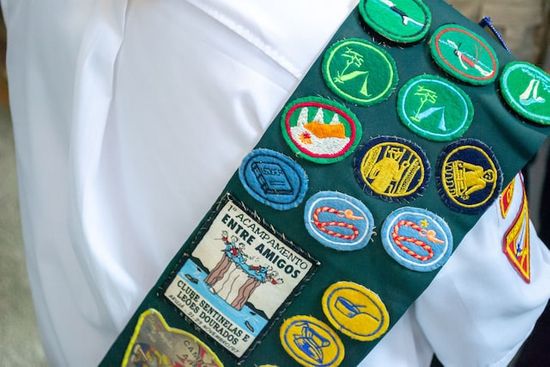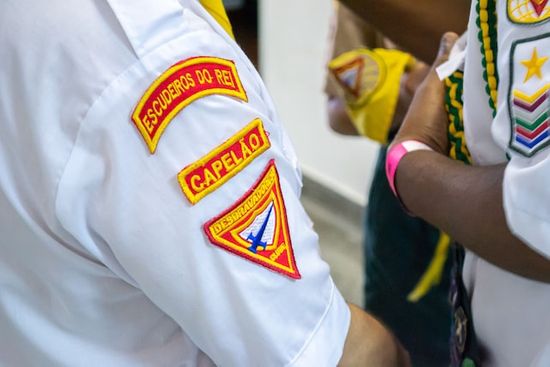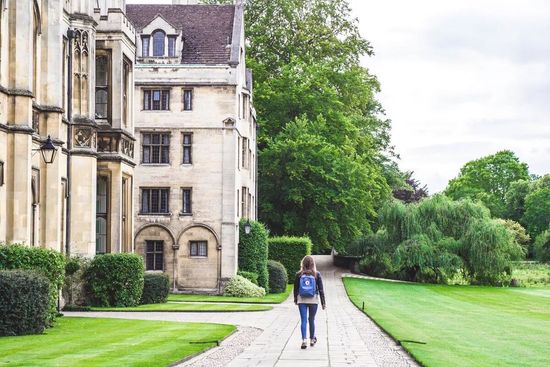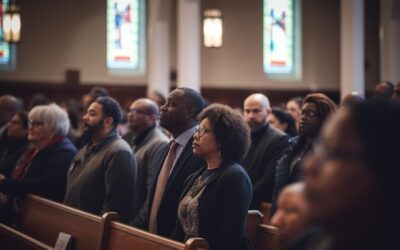Like the boy or girl scouts, Pathfinders and Adventurers learn about nature and life skills.
But what makes these clubs special is their purpose to bring young people closer to Jesus.
If you’ve wondered about Pathfinder or Adventurer clubs and what makes them different, here’s an easy introduction to these popular year-round programs.
You’ll learn all about:
- The history of Pathfinders
- What Pathfinders is like
- What Adventurers is like
- Pathfinder and Adventurer activities
- The benefits of becoming a member
- How to sign up your kids
Let’s learn what it means to be a member.
The history of Pathfinders
Pathfinders began way back in the 1920s when Willa Steen and John McKim decided the Adventist Church needed a youth ministry program.1 They organized and held the very first Pathfinder club in Anaheim California (USA).
Elder Guy Mann was the first youth director to support the club.2 Although it broke off after a couple of years,3 a man by the name of John H. Hancock started it up again by 1946.4 And by 1950, the Pathfinder club was recognized by the General Conference.5 Later on in the 1980s, the Adventurer program was formed as a ministry for elementary-aged children.6
The result?
The church was able to pave the way for young people to get involved in ministry and community service early on in life.
Operating on a worldwide scale, Adventurers and Pathfinders continues to guide children, tweens, and teenagers today!
What Pathfinders is like
The Pathfinder club is for children ages 10–15 (or fifth to tenth graders).7 The members meet about once a week at the local Adventist Church. The meetings last from September to May. Although Pathfinders normally don’t meet over the summer, they might decide to induct new members in the summer months with a special induction ceremony.
They might begin the meeting by reciting the club pledge, marching, and singing the club anthem. From there they may start a group activity to win their patches—which are small embroidered badges they win for each course they complete.
The members are divided into different class levels depending on their age. They often split into their age groups once they start the group activity. Each class level has their own program with tasks they must complete before going to the next level.
The different class levels include8 :
- Friend: Fifth Grade
- Companion: Sixth Grade
- Explorer: Seventh Grade
- Ranger: Eighth Grade
- Voyager: Ninth Grade
- Guide: Tenth Grade
Because Pathfinders is for older children, the courses are more challenging and specific.
In order to earn the patch, members have to follow the instructions of Pathfinder activity books. For example, the Guide activity book explains how to earn the community outreach badge.
The member can choose between visiting someone who’s stuck in their house, helping someone in need, or another leader-approved outreach activity.9 From there, they must describe their experience in a paragraph, and discuss how to witness to teenagers.10 Then they must try to witness using the techniques they discussed.

Photo by Jonas Kakaroto on Unsplash
With each course they complete, they receive a patch to add to their sash. They are given all of the patches they earned at the end of the year at an investiture ceremony where members get to display their marching skills and knowledge of the Pathfinder law and pledge.
And the achievements don’t stop there!
Members could win the Pathfinder Excellence Award at the end of every year. This is given to the member that goes above and beyond in his/her responsibilities as a Pathfinder.
But beyond earning awards and patches, Pathfinders is all about teaching its members to follow Jesus. These guidelines are in their law and pledge.
The Pathfinder Pledge: By the grace of God, I will be pure and kind and true. I will keep the Pathfinder law. I will be a servant of God and a friend to man.11
The Pathfinder Law12:
- Keep the morning watch.
- Do my honest part.
- Care for my body.
- Keep a level eye.
- Be courteous and obedient.
- Walk softly in the sanctuary.
- Keep a song in my heart.
- Go on God’s errands.
These principles help members enjoy a club that is friendly, fun, and Christ-centered.
(To see more of what a local Pathfinders club is like, here is information from two churches in Kenya that run active clubs: Nairobi Central Adventist Church and Nairobi East Adventist Church.)
What Adventurers is like
The Adventurer club is designed for younger children ages four-nine (or Pre–Kindergarten kids to fourth graders). The members meet about once a week at the local Adventist Church. They also meet from September to May, with a break in Summer. They might begin the meeting by reciting the club pledge, marching, and singing the club anthem. After that, they’ll be split into their different age groups to complete their group activities and earn their patches.
Like Pathfinders, they have activities and classes based on each class level.
Also like the Pathfinders, they have specific, class-level activity books explaining how to earn their patches. For example, the builder activity book explains how to earn the reading patch. The member must read or listen to several books including some chapters of the book of Acts, a Bible story book, a safety book, a book about family or friends, a history book, and a nature book.13 After reading selections of these books and rating what they thought of it, they will earn the patch.14
 Members earn patches with every course they complete, and receive them at the end-of-year investiture ceremony similar to the Pathfinder ceremony.
Members earn patches with every course they complete, and receive them at the end-of-year investiture ceremony similar to the Pathfinder ceremony.
The different levels include15:
- Little Lamb: Pre-Kindergarten
- Early Bird: Kindergarten
- Busy Bee: First Grade
- Sunbeam: Second Grade
- Builder: Third Grade
- Helping Hand: Fourth Grade
The Adventurers even have their own pledge and law.
The Adventurer Pledge: Because Jesus loves me, I can always do my best.16
The Adventurer Law17:
- Be obedient.
- Be pure.
- Be true.
- Be kind.
- Be respectful.
- Be attentive.
- Be helpful.
- Be cheerful.
- Be thoughtful.
- Be reverent.
These principles guide the Adventurers to love others, do their best, and work together for Jesus.
Pathfinder and Adventurer activities
These activities teach practical skills that will help young people later on in life. On top of that, they are fun and engaging, enabling children to try new hobbies and work together with others.
The courses themselves include the following subjects:
- Bible (spiritual lessons, general Bible knowledge, denominational history)
- Culture (art and history)
- Home economics
- Crafts
- Nature (botany, biology, and wildlife)
- Survival skills
- Recreation (sports and camping)
- Vocational development (like accounting, teaching, car manufacturing)
Pathfinder activities are more advanced and specific. Examples of Pathfinder courses include Christian citizenship, origami, archery, and journalism (click Pathfinder Honors for the full list).
 Adventurer courses are less challenging and more broad. Some examples include bead crafts, sign language, being a good friend, and swimming (click Adventurer Activities for the full list).
Adventurer courses are less challenging and more broad. Some examples include bead crafts, sign language, being a good friend, and swimming (click Adventurer Activities for the full list).
Beside these activities, members can also go on field trips. These field trips are usually camporees – or camping trips – where members get to enjoy the great outdoors, learn about God, and meet other Pathfinders from other churches. There are both regional and union camporees (see, for example, this video about the camporee in Uganda), but the biggest event occurs every 5 years, where Pathfinders around the world have the chance to attend The International Pathfinder Camporee.18
Each year the camporee has a theme based on a Bible story. They also feature guest speakers and opportunities to earn special patches.19 Pathfinders get to meet members from around the world, try food from international vendors, and watch skits that portray the year’s theme.20
While at the site, they can participate in outreach and outdoor activities.21
This camporee is especially beneficial as many members take the camporee as an opportunity to get baptized.22
The benefits of becoming a member
So why exactly do we enroll our kids in after school clubs?
Because they’re enriching.
They give a little something extra to that child’s life whether that be learning a new skill, making new friends, or learning to be a team player.
But most of all, they’re fun!
Pathfinders and Adventurers are no different!
These programs are so valuable because they…
- Teach them practical life and survival skills
- Teach them about nature and the world around them
- Help them meet and befriend others who believe in Jesus
- Encourage them to build a Christlike character
- Strengthen their faith in Jesus
- Show the values of friendship, leadership, and community service
- Teach wholesome values
- Provide fun and educational activities
- Prepare children for future careers
Wanna hear the best part?
Besides giving children practical, hands-on experience, these programs will prepare them for a lifetime of serving Christ (Proverbs 22:6).
How you can sign up
Thinking about enrolling your child in either of these programs?
To sign up, all you have to do is contact the club leaders at your local Seventh-day Adventist Church. You may be able to find out who leads the club by visiting the church website or Facebook page.
When you sign up, you’ll be asked to pay a fee. The Pathfinder leaders decide this amount, although it can vary from club to club. Some clubs include more enrollment costs in their fee—from covering the cost of patches to equipment and field trip dues.
The Pathfinder club is managed like typical clubs. Different positions from the club director to the secretary and treasurer all handle different areas and keep the club running. The club director is selected by the church, while the other positions are determined by the club as a whole.23

Photo by Jonas Kakaroto on Unsplash
Although, the roles that have the most interaction with the Pathfinders are the counselors and instructors. Much like a camp counselor, counselors are positions for older teenagers to guide the younger ones through activities.24 Instructors, on the other hand, are in charge of setting up and demonstrating the activities.25
There are a couple expectations for club staff from training.
Some of these expectations include26:
- Reflecting a Christian character (to provide a good role model for children)
- Prior experience with Pathfinders and the Adventist Church (the experience level varies based on the position, most require being an Adventist Church member)
- Attending the annual Pathfinder Leader Convention
- Receiving basic staff training (learning curriculum, club practices, and leadership skills27)
- Background checks and child safety training (to promote safety and prevent dangerous or abusive situations28)
These expectations ensure the children will only be led by the most qualified and responsible people.
Parents can participate in their child’s club by volunteering to help set up activities or prepare treats for the children. Parents can also do their part to repeat club lessons at home. Reminding children of spiritual lessons is especially important as parents.
Afterall, they have such a big role in helping their child get to know Jesus.
The only other thing you should know is that any child of any religion—as long as they fit the club age range—is welcome to enroll.
This means Pathfinders and Adventurers is open to everyone! Not just Adventists.
We firmly believe that Jesus values the spiritual growth and leadership of young people (3 John 1:4). This is why it’s so important that we make serious efforts to minister to the young people in our lives, to help them reach their full potential in learning new skills, serving their community, and growing stronger in Jesus.
Make a difference in the life of a child you know today!
- “Pathfinders History,” clubministries.org, North American Division of Seventh-day Adventists, https://www.clubministries.org/pathfinders/pathfinders-history/. [↵]
- Ibid. [↵]
- Ibid. [↵]
- Ibid. [↵]
- Ibid. [↵]
- “Adventurer Club History,”clubministries.org, North American Division of Seventh-day Adventists, https://www.clubministries.org/adventurers/adventurers-history/. [↵]
- “Adventurers and Pathfinders,” gvsda.com, Golden Valley Clinton Seventh-day Adventist Church, https://paconference.org/pathfinders-adventurers/. [↵]
- Ibid. [↵]
- Pathfinder Guide Class Activity Book, (Central Jamacia Conference of Seventh-day Adventists, 2016), https://www.scribd.com/document/589999005/Guide-Activity-Book, pp. 13-14. [↵]
- Ibid. [↵]
- “Aim, Motto, Pledge, and Law,” gcyouthministries.org, Adventist Youth Ministries, https://www.gcyouthministries.org/ministries/pathfinders/aim-motto-pledge-and-law/. [↵]
- Ibid. [↵]
- Builder Activity Book, (North American Division Corporation of Seventh-day Adventists, 2015), https://www.clubministries.org/wp-content/uploads/BU-Activity-Book.pdf, p. 2. [↵]
- Ibid. [↵]
- “Adventurers and Pathfinders.” [↵]
- “Pledge & Law,” gcyouthministries.org, Adventist Youth Ministries, https://www.gcyouthministries.org/ministries/adventurers/pledge-law/. [↵]
- Ibid. [↵]
- “About,” camporee.org, Center for Youth Evangelism, https://www.camporee.org/about/. [↵]
- camporee.org, Center for Youth Evangelism. [↵]
- Ibid. [↵]
- Ibid. [↵]
- Ibid. [↵]
- “Pathfinder Roles and Responsibilities,” pathfinder.org, Australian Union Conference of the Seventh-day Adventist Church, https://pathfinder.org.au/pathfinder-roles-and-responsibilities/. [↵]
- “Leadership,” assets.websites-files.com, https://assets.website-files.com/5b8718b764a949c69b2f1a63/5c6b290a10a23c0d0d55b8e8_PATH-HB_11_Leadership_04.14.08.pdf. [↵]
- Ibid. [↵]
- Ibid. [↵]
- The Pathfinder Basic Staff Training Course, (Youth Ministries Department of the General Conference of Seventh-day Adventists, 2004), https://www.gcyouthministries.org/wp-content/uploads/Pathfinder-Basic-Staff-Training-Course.pdf, pp.2-3 [↵]
- “Pathfinder Safety: Preparing Staff and Volunteers,” adventistrisk.org, Adventist Risk Management Risk, https://adventistrisk.org/en-us/safety-resources/solutions-newsletter/2018/january/pathfinder-safety-preparing-staff-and-volunteers. [↵]
Related Articles
More Answers
What Is ASI (Adventist-Laymen’s Services and Industries)?
ASI, which stands for Adventist-laymen’s Services and Industries, is a membership-based organization that provides support for Seventh-day Adventist laypeople (Adventist professionals who aren’t pastors).
Sola Scriptura—What Does It Mean, and Why Is It So Important?
Sola scriptura is a term that originated during the Protestant Reformation. It represents the way many Christians view the Bible and its authority.
What is the Concept of “Present Truth” and Why is it Important?
Present truth is the principle that certain biblical truths are relevant to God’s people at specific times in history. God sends the Holy Spirit to reveal truths that help us better understand how to interpret and apply His Word in a present moment.
What Does the Bible Say About Modesty
The Bible teaches that modesty, a form of humility and respect, is a valuable quality in everyone—men, women and children. It has to do with how we present ourselves, which should exemplify our inner relationship with God.
13th Sabbath Offering: What It Is and Why It Matters
On the last Sabbath of every quarter, Adventist churches participate in the 13th Sabbath offering—a special offering that goes to mission fields around the world.
Adventist Movies: Where Faith and Film Meet
The Seventh-day Adventist Church’s mission from the beginning has been to share God’s truth in the Bible. And as times have changed, we’ve explored new ways of doing this—one of those being movies.
Everything You Need to Know About an Adventist Church Potluck
Every so often, usually on a schedule ranging from once a week to once a month to once a quarter, an Adventist church will have “fellowship dinners,” often casually referred to as potlucks.
How to Join the Seventh-day Adventist Church
Whether you heard about the Seventh-day Adventist Church through a traveling evangelist, during your online searches, or through a loved one or relative, you might be considering joining yourself.
How Do Adventists Make Movie and Music Choices?
We have entertainment at our fingertips. With just a tap on our smartphones, we can access all the latest movies, music, YouTube videos, and more.
Do Adventists Celebrate Birthdays?
Yes, most Seventh-day Adventists do celebrate birthdays because we see them as excellent reminders of the life God has blessed us with. And we celebrate them the same way everyone else does—with friends, family, presents, and a special meal.
Are Seventh-day Adventists Christians?
Yes, the Seventh-day Adventist Church is a Protestant Christian denomination formed in 1863. Just like other Christians, we believe that Jesus Christ is our Savior and seek to follow the principles of the Word of God.
Do Seventh-day Adventists Believe in the Secret Rapture
The secret rapture belief asserts that the followers of Jesus will be suddenly and stealthily “raptured” from earth and taken to heaven. Then, any people left on earth will face a period of great difficulty—before Christ’s second coming actually happens.
The Seventh-day Adventist Hymnal
The Seventh-day Adventist Hymnal is a songbook used worldwide by many Adventist congregations during their worship services. Since its publication in 1985, it has helped foster praise to God while reminding church members of our mission and drawing them closer to Jesus.
Do Adventists Have Their Own Bible?
Adventists have some unique beliefs—you might be able to name some of them right now. The seventh-day Sabbath. Death as a sleep. Hell as nonexistence.
Do Adventists Celebrate Communion and Foot Washing?
Like many Christian denominations, Adventists regularly participate in communion, also referred to as the “Lord’s Supper” or the “Last Supper.” They also practice foot washing (John 13:1-20), or the “ordinance of humility,” during the service—which isn’t as common.
How do Adventists choose what to eat?
Every day, parents go through the ritual of getting their kids to eat what is healthy and good while trying to steer them away from what can hinder the growth of their developing bodies. Nutritionists work with their clients to make better food choices.
What Are Seventh-Day Adventist Sermons Like?
In nearly every Seventh-day Adventist Church, the sermon is the focal point of the main service—similar to many Protestant Christian denominations. It is a time of biblical instruction by the pastor, who shares what they’ve been studying in the Bible and preparing over the previous week.
Didn’t find your answer? Ask us!
We understand your concern of having questions but not knowing who to ask—we’ve felt it ourselves. When you’re ready to learn more about Adventists, send us a question! We know a thing or two about Adventists.




















